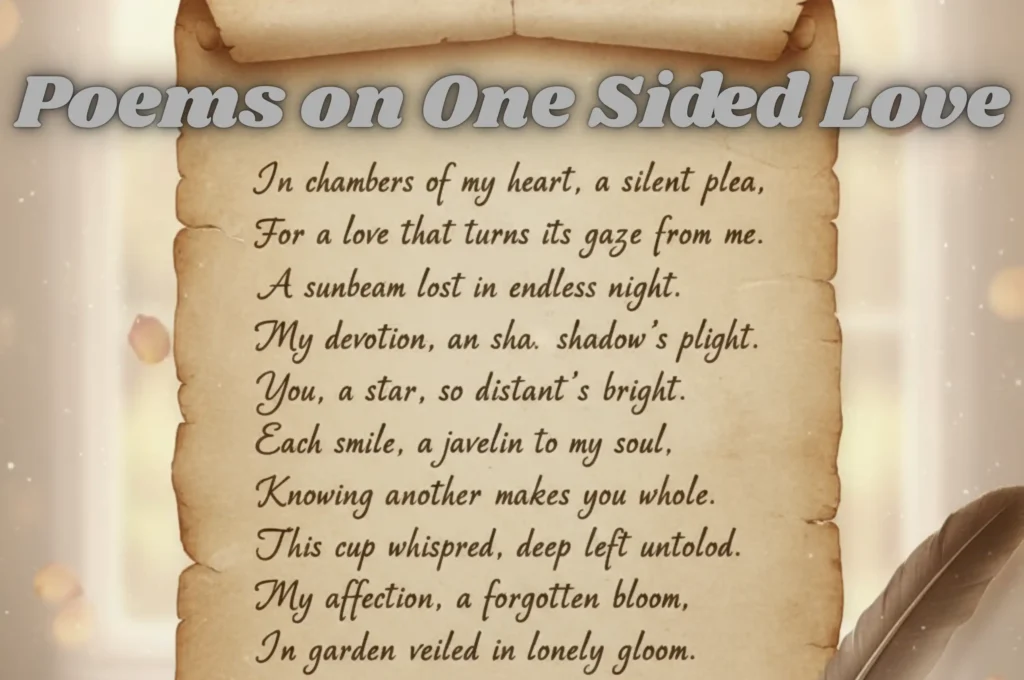Introduction – Sonnet 18
Sonnet 18. “Shall I compare thee to a summer’s day?” is one of William Shakespeare’s most famous sonnets, Shakespeare Sonnet 18, composed in the late 16th century. It is part of a sequence of 154 sonnets written by Shakespeare, exploring themes such as love, beauty, time, and mortality.
The poem opens with the rhetorical question, “Shall I compare thee to a summer’s day?” This question sets the tone for the entire sonnet, as the speaker contemplates the beauty of the person addressed and considers whether it is appropriate to liken them to the perfection of a summer’s day.
Table of Contents
Poem Shall I Compare Thee Lyrics
Shakespeare Sonnet 18
Shall I compare thee to a summer’s day? Lyrics
Shall I compare thee to a summer’s day?
~ William Shakespeare
Thou art more lovely and more temperate:
Rough winds do shake the darling buds of May,
And summer’s lease hath all too short a date;
Sometime too hot the eye of heaven shines,
And often is his gold complexion dimm’d;
And every fair from fair sometime declines,
By chance or nature’s changing course untrimm’d;
But thy eternal summer shall not fade,
Nor lose possession of that fair thou ow’st;
Nor shall death brag thou wander’st in his shade,
When in eternal lines to time thou grow’st:
So long as men can breathe or eyes can see,
So long lives this, and this gives life to thee.
Poem Shall I Compare Thee Meaning
Shakespeare Sonnet 18
Shall I compare thee to a summer’s day?
~ William Shakespeare
Thou art more lovely and more temperate:
Rough winds do shake the darling buds of May,
And summer’s lease hath all too short a date;
“Shall I compare thee to a summer’s day?”: This line poses a rhetorical question, asking whether the speaker should liken the beloved to the beauty and warmth of a summer day. It sets the stage for the comparison between the beloved’s qualities and those of a summer’s day.
“Thou art more lovely and more temperate:”: Here, the speaker declares that the beloved is even more beautiful and moderate (mild, gentle) than a summer’s day. This suggests that the beloved’s beauty is not only exquisite but also consistent and enduring, unlike the transient nature of summer.
“Rough winds do shake the darling buds of May,”: This line refers to the unpredictable and harsh winds that can disturb the tender, beloved buds of May. It emphasizes the idea of vulnerability and impermanence, as even the most promising and cherished aspects of nature can be subject to disruption.
“And summer’s lease hath all too short a date;”: This line reflects on the brevity and transience of summer. The word “lease” suggests that summer is a temporary period, with an allotted time that is all too brief. It highlights the fleeting nature of seasonal beauty and enjoyment, reinforcing the contrast between the ephemeral qualities of nature and the enduring beauty of the beloved.
In summary, these lines juxtapose the beloved’s enduring beauty and moderation with the transient and sometimes harsh qualities of nature, particularly those of summer. They set the stage for the speaker’s assertion that the beloved’s beauty surpasses that of a summer’s day, as it is both more exquisite and more enduring.
Sometime too hot the eye of heaven shines,
~ William Shakespeare
And often is his gold complexion dimm’d;
And every fair from fair sometime declines,
By chance or nature’s changing course untrimm’d;
“Sometime too hot the eye of heaven shines,”: This line refers to the sun, often symbolized as the “eye of heaven.” The speaker suggests that sometimes the sun shines too intensely or fiercely, implying that extreme heat can be uncomfortable or oppressive.
“And often is his gold complexion dimm’d;”: Here, the speaker acknowledges that the sun’s radiant golden appearance can be obscured or diminished. This might happen due to various factors such as clouds covering the sun, atmospheric conditions, or the passage of time from day to night.
“And every fair from fair sometime declines,”: This line reflects on the natural order of things, where every beautiful thing eventually fades or declines in beauty. The word “fair” can refer to beauty or attractiveness, suggesting that even the most beautiful things experience a decline over time.
“By chance or nature’s changing course untrimm’d;”: The speaker attributes the decline of beauty to chance or the natural course of change, which is often beyond human control. The term “untrimm’d” suggests that these changes are not deliberate but rather occur naturally, without intervention or grooming.
In essence, these lines further explore the theme of impermanence and change, highlighting the transient nature of beauty and the variability of natural phenomena like the sun’s intensity and appearance. They reinforce the contrast between the fleeting qualities of nature and the enduring beauty of the beloved, as discussed in the preceding lines of the sonnet.
But thy eternal summer shall not fade,
~ William Shakespeare
Nor lose possession of that fair thou ow’st;
Nor shall death brag thou wander’st in his shade,
When in eternal lines to time thou grow’st:
“But thy eternal summer shall not fade,”: The speaker contrasts the impermanence of natural summer with the enduring beauty of the beloved. While summer fades and passes away, the speaker asserts that the beloved’s beauty will remain eternal and will not diminish over time.
“Nor lose possession of that fair thou ow’st;”: Here, the speaker emphasizes that the beloved will never lose ownership or possession of their beauty (“that fair thou ow’st”). This suggests that the beloved’s beauty is inherent and immutable, not subject to loss or forfeiture.
“Nor shall death brag thou wander’st in his shade,”: The speaker boldly declares that even death cannot claim victory over the beloved. Death, often personified as a powerful force, will not boast or triumph over the beloved by casting them into darkness or oblivion (“his shade”).
“When in eternal lines to time thou grow’st:”: This line introduces the idea that the beloved’s beauty will be preserved for eternity through the timeless power of poetry (“eternal lines”). The speaker suggests that as long as people exist and can read, the beloved’s beauty will continue to grow and thrive, defying the passage of time.
In summary, these lines express the speaker’s conviction that the beloved’s beauty transcends mortality and will endure indefinitely. The use of language evokes a sense of permanence and immortality, as the beloved’s beauty is portrayed as timeless and impervious to decay or loss.
So long as men can breathe or eyes can see,
~ William Shakespeare
So long lives this, and this gives life to thee.
“So long as men can breathe or eyes can see,”: The speaker asserts that as long as humans exist and are capable of breathing and seeing, this poem will endure. This line emphasizes the timeless nature of poetry and suggests that as long as people continue to read and appreciate poetry, the subject of the poem—the beloved—will also live on.
“So long lives this, and this gives life to thee.”: The speaker concludes by stating that as long as the poem exists, it will continue to give life to the beloved. Here, “this” refers to the poem itself, which immortalizes the beloved’s beauty and ensures that it will never be forgotten. The poem acts as a conduit through which the beloved’s beauty is preserved and celebrated for eternity.
In essence, these lines underscore the enduring power of poetry to transcend time and mortality. Through the act of writing and reading poetry, the beauty of the beloved becomes immortalized, ensuring that it will live on for generations to come. The poem becomes a testament to the enduring nature of love and beauty, offering solace and reassurance in the face of mortality.
Summary of the Poem – Shall I compare thee to a summer’s day?
Throughout the poem, the speaker contrasts the beloved’s beauty with the transient nature of summer. While summer is often associated with beauty and warmth, it is also subject to change and impermanence. The speaker acknowledges this by highlighting the shortcomings of summer, such as its “rough winds” and the fact that its beauty fades all too quickly.
However, the speaker ultimately concludes that the beloved’s beauty surpasses that of summer. They argue that, unlike summer, the beloved’s “eternal summer shall not fade,” suggesting that their beauty will endure for eternity. The speaker claims that as long as people can read this poem, the beloved’s beauty will live on, immortalized in verse.
The final couplet of the sonnet serves as a declaration of the power of poetry to preserve beauty and defy time. The speaker asserts that as long as humans exist and can read, the beloved will live on through the words of the poem, ensuring that their beauty will never be lost to the passage of time.
In summary, “Shall I compare thee to a summer’s day?” is a timeless exploration of love and beauty, expressed through the contrast between the transient nature of summer and the enduring quality of the beloved’s beauty. It is a celebration of the power of poetry to immortalize that which is most cherished and beloved.
Read More:



















